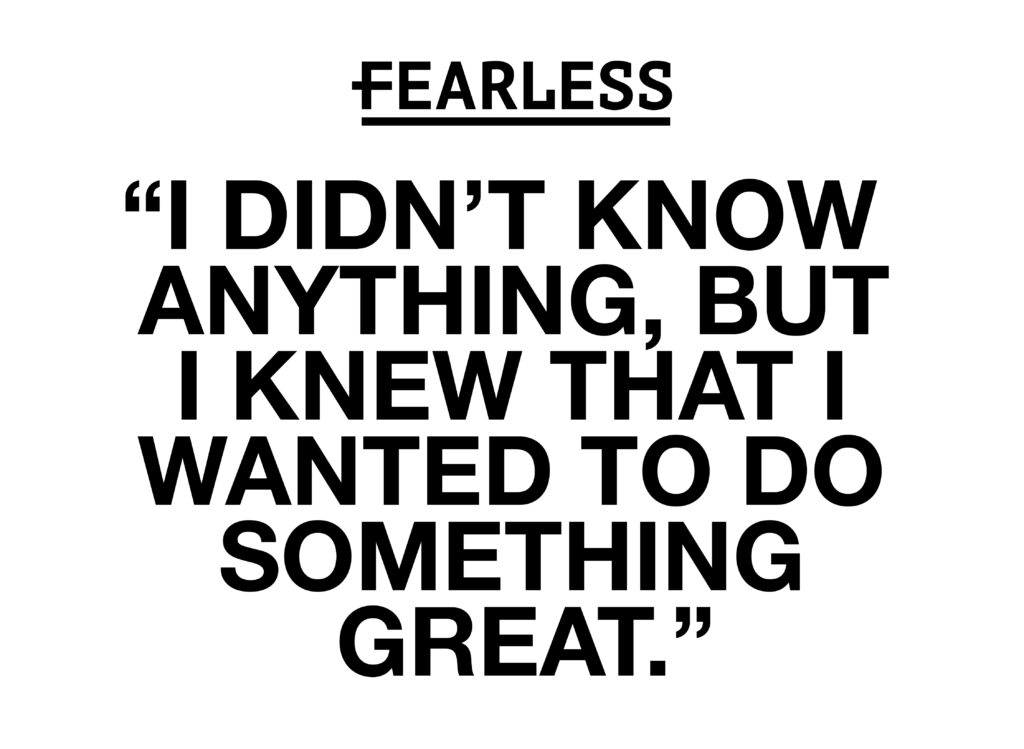Turning commitment into action
Business strategies on racial equity focus of new partnership

EMILY BARSKE Nov 4, 2020 | 7:14 am
6 min read time
1,349 wordsArts and Culture, Business Record Insider
More than 100 of Des Moines’ top-level leaders have signed a recent pledge committing to racial equity. Others have put out statements in support of Black Lives Matter. Some have made donations to organizations working on racial equity or looked at diversifying their supply chains. Many leaders have made a commitment to listen and learn.
Racial unrest caused by inequality across every facet of society has always been a part of American culture. But the deaths of George Floyd and Breonna Taylor at the hands of police, a pandemic disproportionately affecting people of color and other current events have led to protests and grassroots movements across the country. Des Moines has been no different.
The new era of racial justice leaders want change across all systems – public and private.
Urban Dreams, which provides Des Moines’ inner city and Central Iowa with a wide range of human service programs that break down barriers for underserved and underrepresented populations, has received an influx of requests for its staff members to be resources for businesses.
“We were getting a lot of calls over the last couple months about cultural competency, racial equity, things of that nature. Systemic racism – all the buzzwords,” said Izaah Knox, executive director of Urban Dreams.
Learning about cultural competency is one thing, but being able to shift the culture of well-established businesses and organizations is more complicated.
A new partnership – between Urban Dreams, Tero International Inc. and the Business Record – is meant to meet the challenge. The “Executive Vision Series: Strategies for Racial Equity” is geared toward top-level leaders wanting their organization’s culture to reflect honest and equitable practices from communication, to hiring, to retention and succession.
“It’s hard to find a leader that doesn’t agree that equity is important,” said Rowena Crosbie, president and owner of Tero. “So many of them then get stuck and say, ‘So what do I do next? What does this mean in my business?’
“And that’s what this series is providing to the executives, is the answer to how do I get into an environment and figure out what’s next, how do I turn my good intentions and my good commitment into meaningful action that will shape not only my business, but also this wonderful community that we all live in.”
Offering something new
Both Urban Dreams and Tero offer other diversity, equity and inclusion training – but this one will be different. While other trainings focus more on individual education and cultural competency, this program focuses on implementing strategy to make your workplace more equitable for people from all racial and ethnic backgrounds.
The organizations approached the Business Record about getting this in front of top leaders, who are the publication’s core audience. Chris Conetzkey, publisher and executive editor of the Business Record, said that it’s been clear many businesses want to take action against racial inequity, but don’t know exactly how to go about it.
“Statements of support are nice and tweets are great. But what we want to do is really give people the tools to actually make the meaningful change in their organization, in their community and to start that conversation at the highest level of the organization,” Conetzkey said. “And ultimately give them the tools to be able to to implement things within their business and community.”
Knox said the racial equity series creates a space where peers can talk about what they’ve done, their best practices and any questions they have. “Because if they ask me questions, you know, I can give them the answer. But how about they start asking each other – what are you doing? Hold each other more accountable – because I can only hold so many people accountable. And one time, or a few hours [of a training], often isn’t quite enough.”
The need to shift focus to strategy rather than simply valuing equity is not unique to Des Moines.
“Educating oneself is important, but it will be meaningless unless leaders take the next step: investigating how their organization’s culture has reproduced systems of oppression, undercutting some groups’ opportunities to thrive and succeed, while giving others a boost,” Robin J. Ely and David A. Thomas, wrote in the Harvard Business Review (read that here: bit.ly/34EH6Y4).
The authors debunk the business case often made for diversifying your company and leadership, which is that more diversity helps your bottom line. Through a scholarly lens, they argue, there might be correlation but not direct causation. The reason to diversify your company is because inequality is bad – and they ask: Why do we need any other argument than that? “If company profits come at the price of our humanity, they are costing us too much,” Ely and Thomas wrote.
While Tero brings the expertise in establishing curriculum and the Business Record brings the audience together, Urban Dreams staff will bring the content through lived experience.
“We bring the real life,” Knox said. “The actual understanding of what it is like to not only be Black in this community, but then working with people of color in this community for so long. Living here. Being here. Having conversations here. … We bring that grassroots aspect.”
Goals of the series
So what do the leaders hope the business community will get out of this?
“[I hope] they’ll wake up and understand more, and they’ll have a common language so that they can actually ask those hard questions and they can hold each other accountable – but actually moving the needle as well. I want to see some of these disparities shrink,” Knox said.
The companies participating are all successful companies and probably don’t need to do this to improve their bottom lines, Knox said, but business leaders have to recognize that inequality is bad for the community. “We don’t want to talk about the past – we want to talk about the future demographics of our community, the future workforce, the future success, how we make people feel more welcome. So that’s where we’re trying to push these companies, no matter what you did in the past to be successful, no matter the mistakes you may have made, we’re moving on to a new place.”
Even as leaders uncover barriers within their organizations, the focus will be on solutions and not accusatory, Knox said.
“Examining the systems that run their companies with an equity lens is something most of them have never done,” Crosbie said. “Most diversity and inclusion programs are around challenging the mindsets and biases of individuals. And that’s all really useful, but there’s so much that individual businesses can do for racial equity and that’s really the goal of this.”
The leaders of this partnership envision that this is just the start of the Executive Vision Series. This first round will help inform what will come next, Crosbie said.
“We’re looking forward to doing it again,” Knox said. “We’re looking forward to coordinating and collaborating, and making sure this is a shared experience with our community to really move the needle.”
Leaders from Business Publications Corp., which owns the Business Record, will be among the participants. Conetzkey said he’s most excited to have the training open his eyes to the things he wasn’t aware that he didn’t know. “If we can help move people along the spectrum into a place where they’re looking at the world differently than they were before they started the class – even slightly – I think that’s going to be the biggest winner of all. Because then all of a sudden everything that you start seeing, you start identifying [the problem] rather than waiting to be told that something’s not right,” he said.
More than 135 executives are signed up to participate in this first round. Five 90-minute virtual sessions make up the series. There will be both large-group and small-group work involved. Crosbie said participants should “be prepared to be tossed out of your comfort zone.”
“It’s going to be a little bit of fun too,” Knox said, laughing. “We’ll probably laugh. We’ll probably cry. We’ll probably do all those things.”










